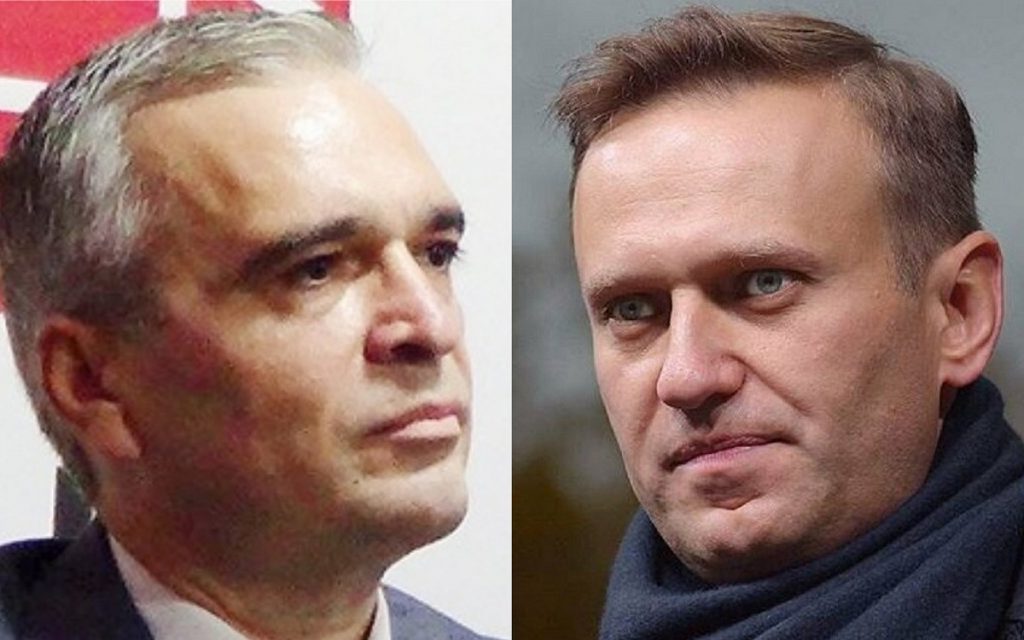Mammadov and Navalny: One got justice - will the other?
Russian opposition leader Alexei Navalny called for the Committee of Ministers of the Council of Europe to initiate proceedings at the European Court of Human Rights (ECHR) in regards to Russia’s failure to comply with the European court’s rulings on his case.
However, the committee has only ever applied this procedure once – to release the Azerbaijani oppositionist and blogger Ilgar Mammadov from prison, the BBC writes.
- “I couldn’t prove the truth.” The story of a Georgian girl who committed suicide
- String of scandalous lawsuits in Azerbaijan over prohibited wedding
- Azerbaijani court convicts football coach for joining Karabakh war rally
Some sources report that Navalny’s lawyers informed the Committee of Ministers of the Council of Europe of Russia’s “absolute disrespect” for the ruling of the ECHR and the “unwillingness of the authorities to even pretend that they are executing it”.
In their statement, Navalny’s lawyers noted that “the unlawful conviction in the Yves Rocher case has become an instrument in the hands of the authorities to continue prosecuting Navalny”.
What did the ECHR rule on Navalny?
In 2017, the ECHR found that Navalny’s conviction in the Yves Rocher case violated Articles 6 and 7 of the European Convention on Human Rights: the trial was unfair, and the verdict punishing Navalny for commercial activities should not have qualified as a criminal offense.
The ECHR explicitly indicated that Russian courts must ensure that its rulings on Navalny’s case do not violate the Convention on Human Rights, or else the courts’ decisions cannot be implemented, the BBC added.
The Supreme Court of Russia refused to overturn the sentence, and on February 2, the Simonovsky District Court of Moscow replaced Navalny’s suspended sentence with an actual term of imprisonment.
Another statement to the committee on behalf of Navalny, dated January 22, reports the attempted murder of the politician and his arrest at the Sheremetyevo airport on January 17.
Mamedov’s case as a precedent
Since 2010, Article 46 of the European Convention on Human Rights has allowed the committee to notify ECHR on whether or not the national authorities have fulfilled the obligation to comply with ECHR’s rulings. However, the committee has only applied this procedure once – in the similar case of oppositionist and blogger from Azerbaijan, Ilgar Mammadov.
Mammadov was going to run for president in 2013 but was arrested and sentenced to seven years in prison. In 2014, the ECHR found that he was convicted with the aim of “silencing or prosecuting him for criticizing the authorities and trying to disseminate what he believed to be true information that the government wished to hide”.
After the appeal of the committee to the ECHR, Mammadov was released on parole, but his criminal record did not allow him to participate in the elections. The Supreme Court of Azerbaijan dropped all charges against him only after the ECHR confirmed that its ruling was not executed, and that’s what Navalny is trying to achieve at the moment.
Comment from Mammadov himself
The leader of the Azerbaijani opposition Republican Alternative party Ilgar Mammadov commented on the news about the initiative of Alexei Navalny.
“Navalny is right to think that ‘Ilgar Mammadov is a guy no better than me, and the Council of Europe rule applied to him, it should apply to me as well’. Yes, the only precedent created by Ilgar Mammadov will benefit many, but Navalny should know that in order to apply this rule while behind bars, we had to correspond with the Committee of Ministers for 3 years. In my last letters, I even strongly rebuked them in diplomatic language. It took us 2.5 years to sum up the case. In other words, this is a very slow process, but if he has the strength to claim his right, let him demand it”, Mammadov posted on his Facebook page.




















